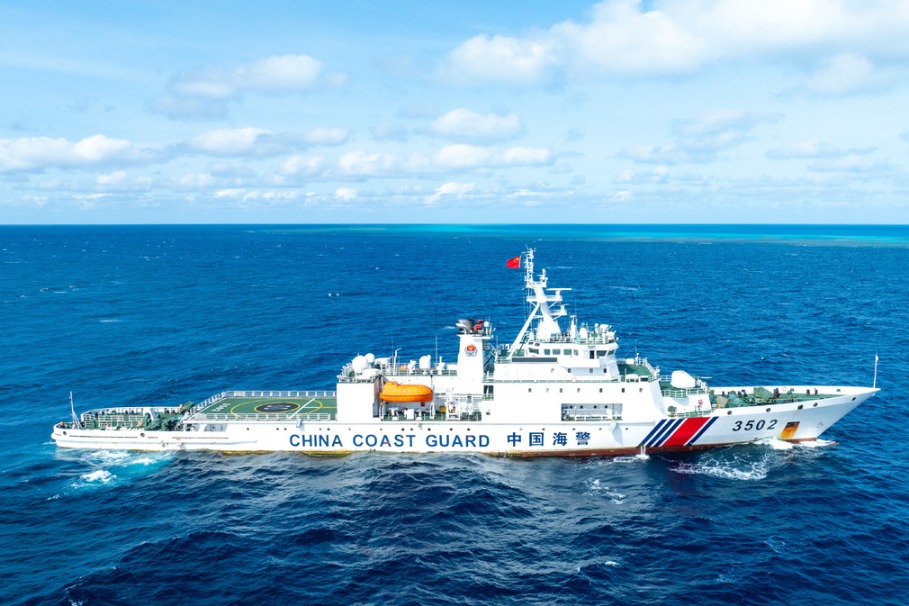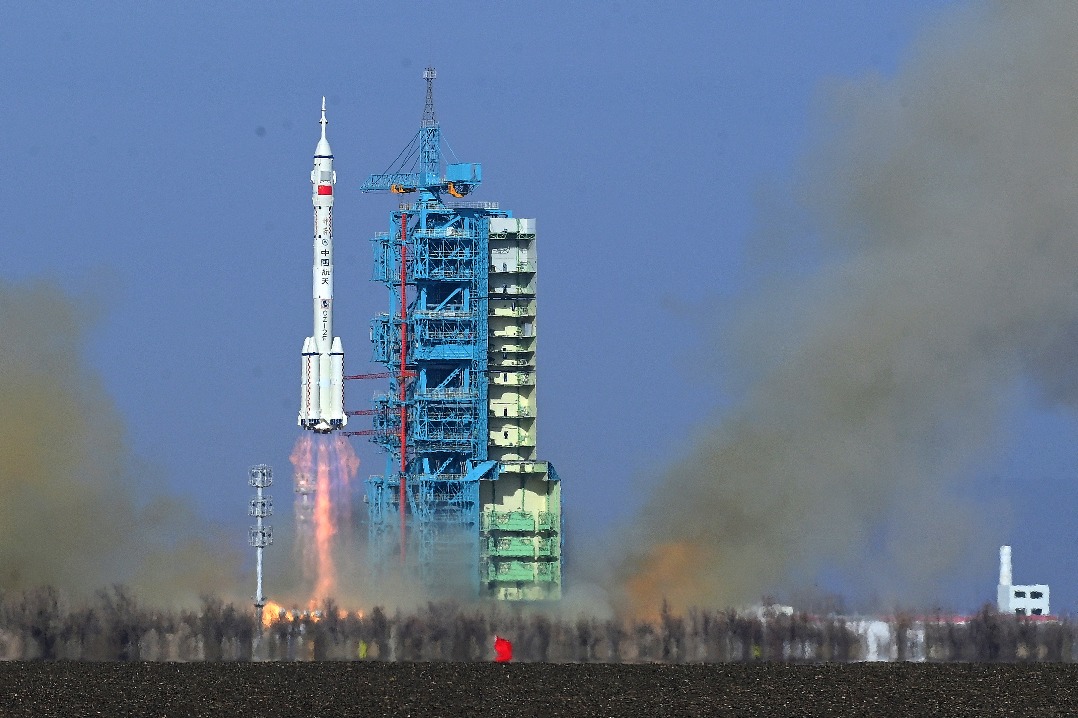Hong Kong, Macao to get more support

The central government will provide more substantial and broader support to the Hong Kong and Macao special administrative regions, so that the regions can proactively align their development with the country's strategies and the 15th Five-Year Plan (2026-30), members of a high-level central government delegation said on Tuesday.
Speaking at a seminar organized to share the essence of the fourth plenary session of the 20th Communist Party of China Central Committee, Zhu Weidong, deputy director of both the Office of the Central Financial and Economic Affairs Commission and the Office of the Central Rural Work Leading Group, pointed out the extraordinary progress made during the 14th Five-Year Plan (2021-25) period — an average annual growth rate of 5.5 percent, and technological breakthroughs such as producing over 60 percent of the world's new energy vehicles and making significant progress in semiconductors and quantum technology.
The delegation, which also included Hou Jianguo, president of the Chinese Academy of Sciences, held similar seminars in Macao over the weekend. The first seminar in Hong Kong was held on Monday morning with about 500 participants. The delegation then inspected the city's crucial innovation and technology development hub, the Northern Metropolis, in the afternoon.
The second seminar, which was held at the Hong Kong government headquarters at Admiralty on Tuesday, was attended by representatives from a wide section of society, including Hong Kong deputies to the National People's Congress, senior SAR officials and leaders of community associations.
At the second seminar, Hou outlined Hong Kong's strategic role in the 15th Five-Year Plan, including dedicated provisions for its long-term prosperity and stability.
He called for enhanced infrastructure "hard connectivity" and institutional "soft connectivity "and highlighted Hong Kong's pivotal position as an international center.
By strengthening Hong Kong's role as a "super-connector" and "super value-adder" for two-way opening-up, the city is poised to become a major channel for inbound global resources and a crucial platform for China's "going global" strategy, allowing the SAR to play a greater role in supporting the nation's high-standard opening-up, he said.
Hong Kong Chief Executive John Lee Ka-chiu and Zhou Ji, director of the Liaison Office of the Central People's Government in Hong Kong, also spoke at the event.
Lee said the central government delegation's visit "fully embodies the great importance" that the central government places on Hong Kong's development and its care for Hong Kong compatriots.
He said the nation has achieved "world-renowned remarkable accomplishments" during the 14th Five-Year Plan period with significant advancements in economic, technological and comprehensive national strength.
He called the 15th Five-Year Plan a strategic blueprint and clear guidance for the SAR's development, helping to chart a better future for the city.
Zhou from the Liaison Office of the Central People's Government in the SAR said that Hong Kong has entered its "best period" for focusing on economic development, attributing the city's successes to the comprehensive and accurate implementation of "one country, two systems" and the strong backing of the central government.
Gordon Lam Chi-wing, a Hong Kong deputy to the NPC who attended the seminar, told China Daily that the high-level event was a powerful injection of confidence, which signaled that the central government is not just supporting, but actively promoting Hong Kong's prosperity and stability as an integral part of the national blueprint.
He suggested businesses thoroughly study the policies, drive technology upgrades and cross-boundary collaboration, and optimize talent strategies, while individuals should upskill themselves in emerging fields and expand their professional networks across the Guangdong-Hong Kong-Macao Greater Bay Area.
Wong Yuk-shan, vice-chairman of the Hong Kong Basic Law Committee, emphasized leveraging Hong Kong's unique position of "being backed by the motherland while connected to the world" to enhance global engagement.
Sunny Chai Ngai-chiu, chairman of the Hong Kong Science and Technology Parks Corporation, stressed that Hong Kong must master core technologies through deeper collaboration with global institutions and stronger mainland connections. Judith Yu, a member of the Chinese People's Political Consultative Conference National Committee, called for prioritizing emerging tech and pharmaceutical sectors while strengthening ties with key regional economies like the Yangtze River Delta.
stacyshi@chinadailyhk.com
- Hong Kong, Macao to get more support
- Global gathering of Cantonese people opens in Guangdong
- China's draft airline rules represent progress for wheelchair users
- China steps up efforts to tackle wage-withholding employers
- Taicang factory builds inclusivity
- Scientists discover important Early Jurassic dinosaur tracks





































